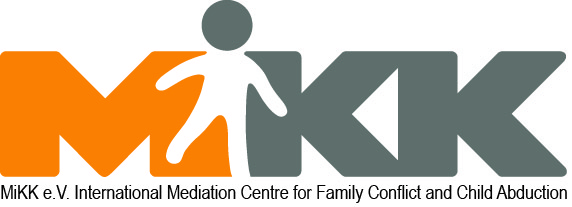What is mediation?
Mediation is…
- an extra-judicial offer to settle conflicts in the case of separation and divorce, or in cases of abduction or visitation and custody disputes
- an aid in achieving a responsible settlement of the questions that must be clarified in conflicts involving bi-national families
- a voluntary process of cooperation that requires the conflicting parties each to agree freely to participation.
- a confidential process of negotiation that can only be completed by joint solutions which are considered fair by both parties.
- a way of presenting, getting to know and learning to understand each other’s different interests and requirements on an equal footing; it also serves to develop a fair settlement for everyone through personal negotiations and to focus (again) on the interests and needs of the children.
- an attempt, even in times of severe conflict and dispute, to find a personal way out of the crisis while maintaining self-esteem, dignity and mutual respect.
- a way of clarifying and redefining family relationships and conditions in which the mediators serve as the parties’ companions, but not as their judges, referees or lawyers.
In the international field, mediation is usually carried out by a bi-national or bi-cultural mediation team. The team of mediators consists of one female and one male mediator, one of whom comes from a legal, whereas the other comes from a psychological, social or educational profession. In addition to fundamental training and broad experience in mediation, they have completed specialized training in the area of international child custody and family mediation.
The duration of a mediation depends on the number themes to be clarified and the degree of escalation, as well as on the particular conditions.
The mediators are subject to confidentiality; they act in the interest of all parties and do not represent any party externally. The mediators are neither therapists nor legal counsels nor referees for either party .
They encourage both conflicting partners alike to articulate their interests and to find a framework for feasible solutions. They promote each conflicting partner’s necessary self-assertion and a disposition towards a fair and joint solution. With the help of mediators, agreements can be reached and also recorded in writing. A legal examination of any agreement by each of the parties’ lawyers is expressly recommended before signing.
Advice
CONTACT US FOR ADVICE ON YOUR SITUATION
FAQs
GET ANSWERS TO YOUR QUESTIONS
Flyer
FLYER IN MULTIPLE LANGUAGES

